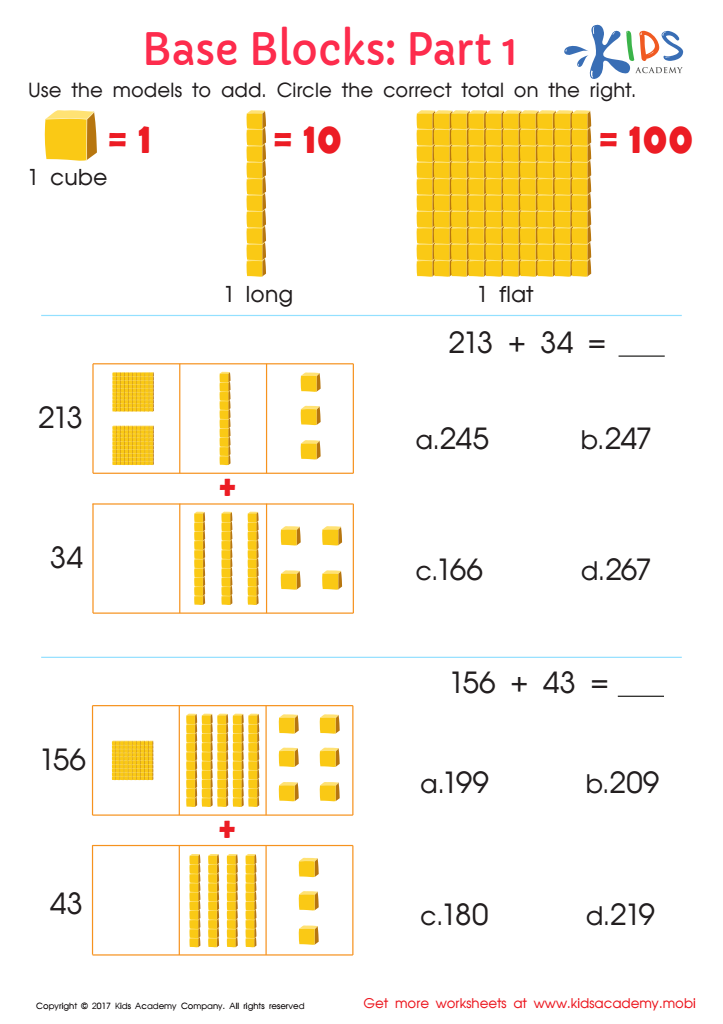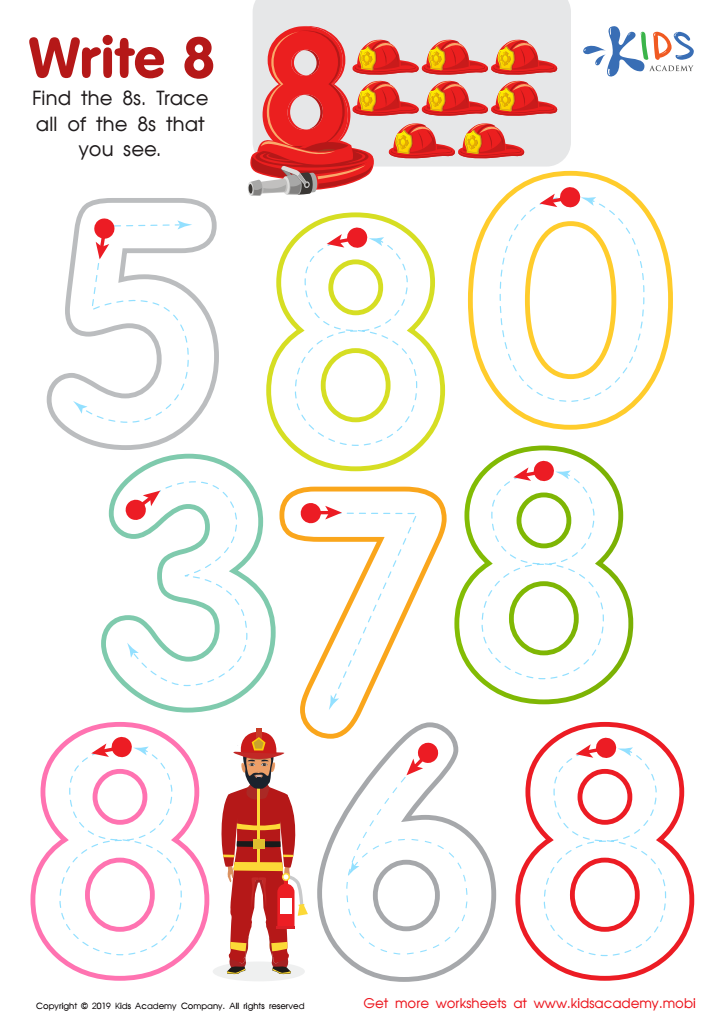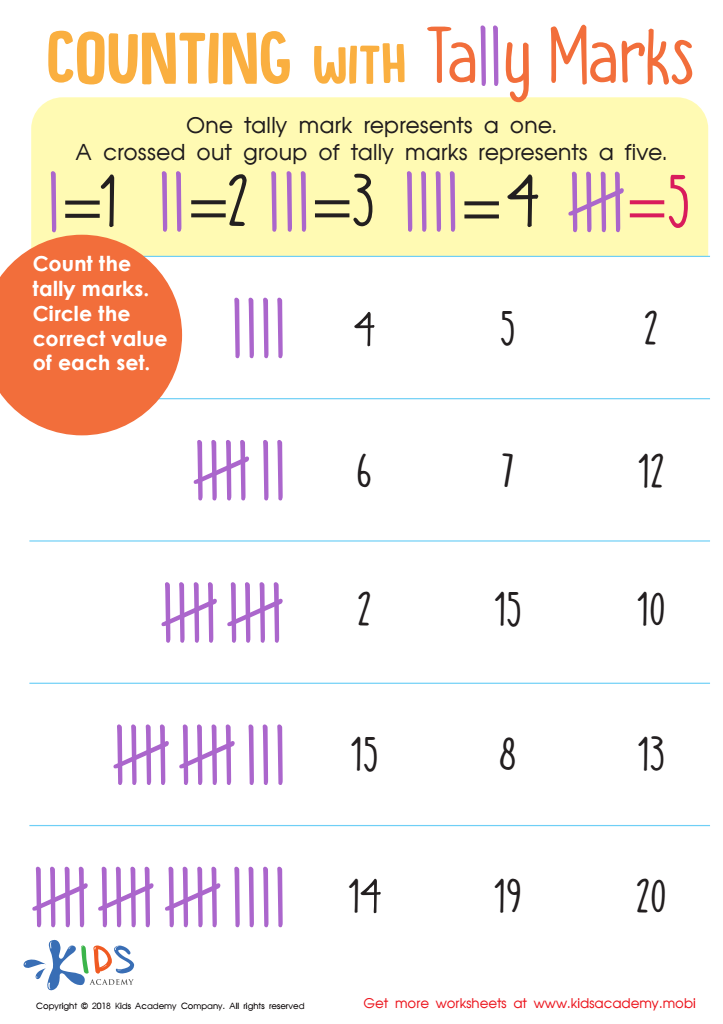Number representation Numbers Worksheets for Ages 3-8
3 filtered results
-
From - To
Explore our engaging Number Representation Worksheets designed for children aged 3-8! These innovative resources help young learners master the concept of numbers through visual aids and interactive activities. Each worksheet reinforces essential skills like counting, number recognition, and writing while promoting early math proficiency. With colorful illustrations and kid-friendly designs, our worksheets make learning fun and effective. Perfect for home or classroom use, they cater to various learning styles and help develop confidence in mathematical abilities. Discover the joy of learning numbers and set your child on a path to success with our comprehensive and enjoyable worksheets today!


Base Ten Blocks Worksheet: Part 1


Write 8 Worksheet


Counting with Tally Marks Worksheet
Understanding number representation is crucial for children aged 3-8 as it lays the foundation for their mathematical journey. Early number sense, which includes recognizing and representing numbers, forms the basis for more complex mathematical concepts. Parents and teachers should care about number representation because it helps children develop critical thinking and problem-solving skills. By recognizing numbers in various forms—such as written numerals, quantities in groups, or on number lines—children can make connections between abstract symbols and tangible quantities, promoting numerical literacy.
Furthermore, grasping number representation fosters a positive attitude towards math by reducing anxiety associated with numbers. Engaging with different forms of number representation, such as using visual aids, manipulatives, or digital tools, can make learning fun and interactive. It also provides opportunities for meaningful conversations between adults and children, promoting a rich learning environment. Lastly, early exposure to diverse number representations prepares children for future mathematical learning and everyday life, where numerical understanding is essential. By prioritizing this aspect of learning, parents and teachers can significantly enhance children’s confidence and competence in mathematics, setting them on a path for academic success and lifelong problem-solving abilities.
 Assign to My Students
Assign to My Students





















